#IndiGo airlines
Text
Why Do Indian Airlines Keep Crashing? Unveiling the Challenges of a Soaring Industry
After a 13-hour delay, a passenger angrily slapped pilot Radhika Apte. She shared on her Instagram that she and all the passengers were stuck on the aerobridge for hours without water or access to toilets. 10-hour flight delays have become common, and airlines only offer a sorry excuse, if you're lucky.
For India to become the 'Golden Bird,' the aviation industry needs to thrive. Think about it. Has your flight been delayed for hours in the last few months? Has your baggage been misplaced? Or did you miss your flight due to a last-minute terminal change? If so, this blog is for you.
Today, we'll explore the harsh realities of India's aviation industry. We'll understand why Indian airlines are failing, the challenges of running an airline business in India, how airlines make money, and the problems they face today. There are 5 core reasons for these issues. If we can address them, no one can stop us from becoming the 'Golden Bird.'
This blog is especially interesting for travel enthusiasts like you and me. If you agree with us, like the blog and follow us.
India is the world's fastest-growing aviation market. Last year, 15 crore people traveled domestically and 7 crore internationally. This number is more than the population of 180 countries, demonstrating how many Indians love to fly. There's a market principle: The more demand, the more revenue, and the more revenue, the more profit. But Indian airlines are different. In the past few years, Jet Airways shut down, GoAir declared bankruptcy, and Kingfisher Airlines crashed. Why is this happening in a market with so much demand?
Let's delve into the first reason. Reason number one is capital. Money is required to run any business, but an airline business requires a lot of money. Richard Branson, founder of Virgin Atlantic Airline, famously said, "If you want to be a millionaire, start with a billion dollars and then start an airline." JRD Tata, India's first aviator who started Air India, understood this as well. He knew operating airlines was tough.
What can be the biggest expense of an airline? Can you guess? Of course, it's the planes themselves. Airlines either buy aircraft directly from Boeing or Airbus or lease them, paying rent. IndiGo recently placed the biggest purchase order in aviation history, purchasing 500 A320 planes from Airbus for delivery between 2030 and 2035. Air India, on the other hand, leases Boeing planes from the American company Delta. Lease essentially means renting, so they have monthly payments. The cost of buying a plane is high, so companies use different methods to manage these high costs.
Now, let's discuss the second major cost. Airlines spend 35-50% of their budget on fuel, which is aviation fuel or ATF. It's a mixture processed from crude oil that powers jet engines and ensures they function well at high altitudes without the fuel freezing. ATF prices in India are linked to international crude oil prices. Premium airlines like Kingfisher lost a lot of money due to a price jump between July 2007 and 2008. Since India doesn't have its own oil reserves and must import it, Gulf and American airlines have an advantage because they control oil or the dollar, while India controls neither. Price fluctuations significantly affect Indian airlines.
The second reason is uncertainty. If you've traveled around Delhi during winters, you've likely heard of the "fog season." Low visibility can ground aircrafts. Pilots and passengers are ready, but the flight cannot take off until visibility improves. As frequent flyers, we understand that some things are beyond the airlines' control. However, if a flight is delayed, the airlines should provide accurate information to passengers. For significant delays, they should arrange food or allow passengers to cancel their flights. This is within the airline's control. Slapping the pilot is an extreme and unacceptable reaction. But if we know flights won't fly due to fog, why aren't better policies implemented? Passengers miss flights for being a minute late, and airlines charge extra for even 1 kg of overweight luggage, but they face no fines or compensation for their mistakes. It seems the responsibility lies solely with the passenger, despite the saying "the customer is king." Once we check in our luggage, we're at the airline's mercy, forced to comply with their policies. This is a surefire way to anger customers. Imagine someone traveling from Delhi to Bangalore for a one-day meeting and their flight is delayed by 10 hours. In such a situation, the delay makes the travel pointless. Shouldn't they have the option to cancel the flight?
Events like COVID-19 negatively impact the global aviation industry. In 2020, according to estimates, the global airline industry suffered losses of $84 billion. As pandemic restrictions lifted, the aviation sector began to pick up. These losses reduced to $51 billion in 2021 and $11.6 billion in 2022.
During peak seasons like Diwali and New Year, demand for travel is high, but it dips significantly during the rest of the year. This uneven distribution of demand creates challenges for airlines. Airlines rely heavily on business travelers for weekday travel.
The third reason is operations. Airlines generate revenue through three main avenues: passenger revenue, cargo revenue, and food and beverage revenue. Passenger revenue includes ticket sales and convenience fees, which some argue shouldn't exist since the booking is done on the airline's website. Additional passenger revenue comes from modifications, cancellations, seat selection, excess baggage, and special service requests. Every airline also deals in cargo, either through dedicated cargo flights or parcel services. Full-service airlines like Air India and Vistara offer complimentary meals on domestic flights, while budget airlines like IndiGo, SpiceJet, and GoAir don't. Passengers on these airlines can pre-book meals or purchase them from the in-flight menu.
Typically, Indian commercial airlines generate most of their revenue from passenger-related services. However, the unpredictable nature of passenger numbers makes it difficult for airlines to accurately predict the number of airplanes needed. On the other hand, operational expenses are high. Pilot salaries, cabin crew salaries, engineer salaries, and other crew member salaries are significant expenses for airlines. When planes are flying, they consume fuel, and when they're on the ground, airlines incur grounding charges, which are essentially aircraft parking charges. In India, domestic and international flights take off from the same terminals, increasing these charges. Additionally, grounded aircraft from insolvent airlines occupy space at airports without paying for it.
As we learned earlier, Boeing and Airbus are foreign companies. For major repairs, planes need to be sent to these manufacturers' facilities, which can be outside India. Delays in these repairs can ground airplanes and endanger passenger safety, making them non-negotiable. GoAir, a low-cost airline that shut down last year, is a prime example. They had to ground most of their planes because their engines turned out to be faulty. Pratt & Whitney, the engine manufacturer, couldn't deliver spare parts on time, leading to the airline's shutdown.
The government also plays a significant role in the aviation industry. The policies they create can heavily impact airline businesses. For instance, during the lockdown from May 2020 to August 2022, the government mandated minimum fares between Rs. 2,900 and Rs. 8,800 for flights less than 40 minutes. This price cap created major problems for airlines. Additionally, both VAT and excise duty are levied on aviation turbine fuel (ATF). During COVID-19, Indian refiners prioritized exporting ATF over supplying it domestically, leading to an export tax on ATF. These high taxes increase fuel costs, squeezing airline profit margins. Furthermore, VAT rates on ATF vary by state, similar to petrol prices. So, if an airline frequently lands at an airport with a high VAT rate, they incur higher fuel costs. All these factors put Indian airlines at a disadvantage.
The final reason is brand loyalty. While India has a high total number of airline passengers due to its large population, per capita travel is low. Only 1% of India's population contributes to about 45% of all flights. This makes it challenging to build and maintain brand loyalty. Consider Kingfisher Airlines, a former premium airline, and IndiGo, a budget airline. Kingfisher was the first to offer complimentary headphones and provided ample legroom, making economy class feel more aspirational. IndiGo, on the other hand, focused on a bare-bones approach with minimal legroom and no complimentary meals. Today, IndiGo holds 62% of India's domestic air travel market share, while Kingfisher is defunct. For a large part of the Indian population who haven't even been on a plane, the experience of air travel itself is a novelty. Features and amenities come secondary to affordability. In a market where customers prioritize the cheapest option, building brand loyalty is difficult. Additionally, negative incidents can quickly tarnish an airline's reputation. For instance, some Boeing aircraft have experienced issues like wheels falling off during takeoff, engines catching fire, and sudden door openings. These incidents scare people and make them hesitant to fly. Similarly, if an airline misplaces your luggage, you'd likely be hesitant to fly with them again.
In conclusion, several factors contribute to the challenges faced by the Indian aviation industry. Fuel prices and dollar rates are beyond India's control. Government taxes are high, and policy changes can significantly impact businesses. Passenger concerns arise due to bad weather and mismanagement. Brand loyalty is difficult to build due to a combination of factors: limited travel experience for a large portion of the population, focus on affordability over brand differentiation, and potential negative incidents. Despite these challenges, the aviation industry remains crucial for India's growth. The country's diverse geography can be better connected through air travel, facilitating trade, tourism, and overall development. The real potential lies in tier 2 and tier 3 cities, where a growing population aspires to travel. As disposable incomes rise, so will the number of air travelers in India. These two factors are directly linked.
If you found this blog interesting, please share it with your friends and subscribe to our channel. The airline business teaches us a valuable lesson: to be profitable, you must keep your costs low. To make India the 'Golden Bird' again, we need to make air travel accessible. The right policies must be implemented to balance business needs with consumer satisfaction. Airlines need to build strong brands that prioritize customer experience. Sharing this message is important because a thriving aviation industry can significantly contribute to India's progress.
Thank you for reading this blog! Your support means a lot to us. Don't forget to follow us.
1 note
·
View note
Text
Australia's Arrivals from India Break New Record — Tourism Chief Talks Strategy
Skift Take
The travel trends to Australia underscore the potential of India’s middle class and its young demographic as a major force in shaping future travel trends.
— Peden Doma Bhutia
Australia saw a record-breaking number of arrivals from India last year.
The new figures, which cover February 2023 to January 2024, show 402,200 inbound travelers entered the country from India. The major…

View On WordPress
#Air India#asia monthly#business events#Indigo airlines#Mice#qantas airways#Tourism (Australia)#visa
0 notes
Text
IndiGo announces flights to Almaty
On May 22, 2023; Fly Arystan started its twice a week service to Delhi from Shymkent, which is the third largest city in Kazakhstan. Surprising as it may seem, no Indian carrier currently operates to any of the five Central Asian states. That is now changing. IndiGo has announced the launch of its maiden flights to Central Asia with the first of the lot being to Tashkent, Uzbekistan and Almaty,…
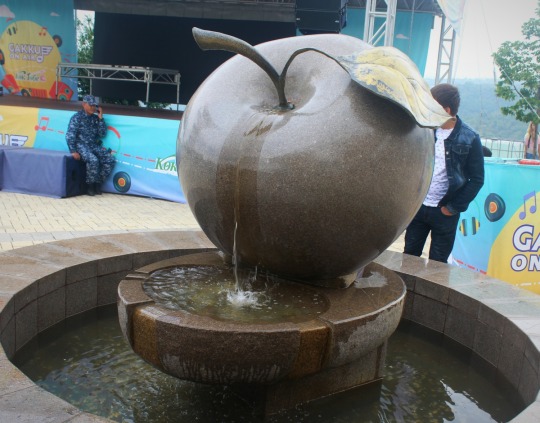
View On WordPress
#Delhi to Almaty flights#India to Kazakhstan#IndiGo A320#IndiGo airlines#IndiGo Almaty#IndiGo central asia#IndiGo Delhi to Almaty#new flights#new route
1 note
·
View note
Text
#aviation regulations#aviation safety#compliance#DGCA#financial penalty#IndiGo Airlines#operational procedures#pilots' license suspension#safety standards#special audit#systemic deficiencies#tail strike incidents
0 notes
Text
IndiGo| goair | indigo airlines | airlines | indigo flight | indigo careers | indigo news
Indigo and Go First are getting the cheapest tickets of the year, get only 6139 International Flight chance
Passengers can travel from March 12 to September 30, 2023। But for this you have to book tickets by 24 February
Do you plan to roam this year? You do not have to worry because you are getting a chance to travel cheaply by September this year। Two of the country’s major airlines have…
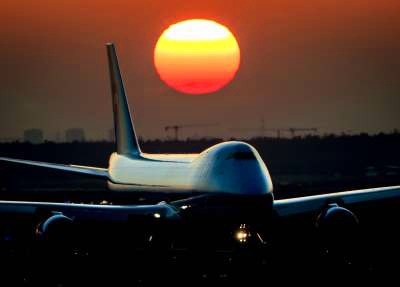
View On WordPress
0 notes
Text
ಎಕ್ಸ್ಕ್ಯೂಸ್ ಮೀ, ಗುಟುಕಾ ಉಗಿಯಲು ವಿಮಾನದ ಕಿಟಕಿಯ ಬಾಗಿಲನ್ನು ತೆರೆಯುವಿರಾ?
Viral Video : ಸಂಸದ ತೇಜಸ್ವಿ ಸೂರ್ಯ ಇತ್ತೀಚೆಗಷ್ಟೇ ವಿಮಾನದಲ್ಲಿ ತುರ್ತು ನಿರ್ಗಮನ ಬಾಗಿಲನ್ನು ತೆರೆದ ಪ್ರಕರಣ ಇನ್ನೂ ಹಸಿಹಸಿಯಾಗಿಯೇ ಇದೆ. ಇದಕ್ಕೆ ಸಾಕ್ಷಿ ಎಂಬಂತೆ ಈ ಪ್ರಕರಣದ ಸುತ್ತ ಅನೇಕ ಮೀಮ್ಗಳು, ಜೋಕ್ಗಳು, ಕಾರ್ಟೂನ್ಗಳು ಇನ್ನೂ ನಮ್ಮನ್ನು ನಗೆಗಡಲಲ್ಲಿ ತೇಲಿಸುತ್ತಲೇ ಇವೆ. ಹೀಗಿರುವಾಗಲೇ ಯುವಕನೊಬ್ಬ ಗುಟ್ಕಾ (Gutka) ಉಗಿಯಲು ವಿಮಾನದ ಕಿಟಕಿಯನ್ನು ತೆರೆಯಲು ಗಗನಸಖಿಗೆ ಕೇಳಿಕೊಂಡ ವಿಡಿಯೋ ವೈರಲ್ ಆಗುತ್ತಿದೆ.
ಇತ್ತೀಚೆಗೆ ಸರದಿಯಂತೆ ವಿಮಾನದಲ್ಲಿ ಸಾಕಷ್ಟು ಅಹಿತಕರ,…
View On WordPress
0 notes
Text
दिल्ली एयरपोर्ट पर इंडिगो विमान के इंजन में लगी आग, सभी यात्री सुरक्षित । ये फ्लाइट दिल्ली से बेंगलुरु के लिए उड़ान भर रही थी, तभी अचानक फ्लाइट के दाहिने विंग से चिंगारी निकलने लगी । इंडिगो एयरलाइंस की फ्लाइट 6E 2131 के इस वीडियो में फ्लाइट के राइट विंग में आग की लपटें नजर आई। विमान में 177 यात्री सवार थे। इस घटना के बाद ये वीडियो सोशल मीडिया पर खूब वायरल हो रहा है।https://lnkd.in/dSkr3-A9
#Airport #IndiraGandhiInternationalAirport #IndiGoflight #indigoairlines #indigo #delhi #delhincr #delhigram #DelhiAirport #fyp #DelhiNews #indiacorenews #viralpost #viralvideo #viralvideo2022
#news#google news#update#breaking news#world news#celebrities#indigo airlines#indigo aircraft#indigo airbus 321#delhi news#best web designing company in delhi ncr#mumbai#uttar pradesh
0 notes
Text
Email threat of bomb on IndiGo flight turns out a hoax: Mumbai police
Email threat of bomb on IndiGo flight turns out a hoax: Mumbai police
A threat email warning of a bomb on an IndiGo flight was received at Mumbai airport on Saturday. However, Mumbai police Sunday said that during the inspection of the flight, nothing was found.
“Further investigation underway,” a Mumbai Police official said.
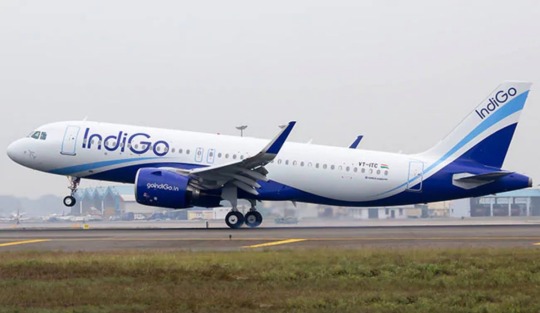
View On WordPress
#bomb on indigo flight#bomb on indigo flight in mumbai#email threat of bomb#email threat of bomb on indigo#indigo airlines#indigo flight bomb#mumbai police on indigo flight
1 note
·
View note
Text
The Top Five Extreme Sports in India for Thrill-Seekers
The Top Five Extreme Sports in India for Thrill-Seekers
Do your favorite pastime activities get the adrenaline going? If so, welcome to the group!
With geographical settings that allow for some real extreme sports, India has recently risen to the top of the list of most preferred places for adventure enthusiasts. Undoubtedly, it can pack a big punch. Pack your bags if you are looking for some adventure sports outside the UAE. There are flights from…

View On WordPress
#Bungee jumping#extreme sports India#Indigo Airlines#Microlight Flying (Ultralight Flying)#Paragliding#Waterfall Rappelling
0 notes
Text
INDIGO AIRLINE
0 notes
Text
इंडिगो की उड़ानों पर आया संकट? कम वेतन के विरोध में टेक्नीशियन दिल्ली और हैदराबाद में छुट्टी पर गए
इंडिगो की उड़ानों पर आया संकट? कम वेतन के विरोध में टेक्नीशियन दिल्ली और हैदराबाद में छुट्टी पर गए
इंडिगो एयरलाइंस (IndiGo Airlines) के विमानों का रखरखाव करने वाले टेक्नीशियन कम वेतन के विरोध में पिछले दो दिन के दौरान दिल्ली और हैदराबाद में छुट्टी पर चले गए हैं। सूत्रों ने रविवार को यह जानकारी दी।
दो जुलाई को इंडिगो की घरेलू उड़ानों में से लगभग 55 प्रतिशत में देरी हुई थी क्योंकि बड़ी संख्या में चालक दल के सदस्यों ने बीमार होने का हवाला देकर छुट्टी ले ली थी। विमानन उद्योग के सूत्रों ने कहा था…
View On WordPress
#aircraft technician#Delhi News#Hindi News#Hindustan#IndiGo#indigo airlines#leave#low pay#News in Hindi#इंडिगो#इंडिगो एयरलाइंस#कम वेतन#छुट्टी#दिल्ली न्यूज#विमान टेक्नीशियन#हिन्दुस्तान
0 notes
Text
Indigo flies ahead of rivals in May, has almost 58% of domestic market
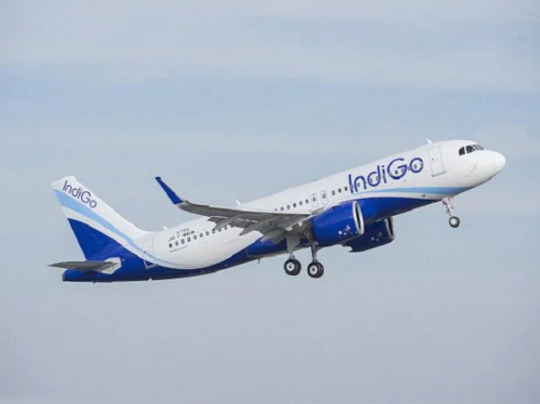
Twelve million passengers flew in May 2022, 1 million more than the previous month and the best ever since scheduled domestic flights restarted in May 2020.
1 note
·
View note
Text
Indigo CEO offers regret after specially- abled child is barred from flight
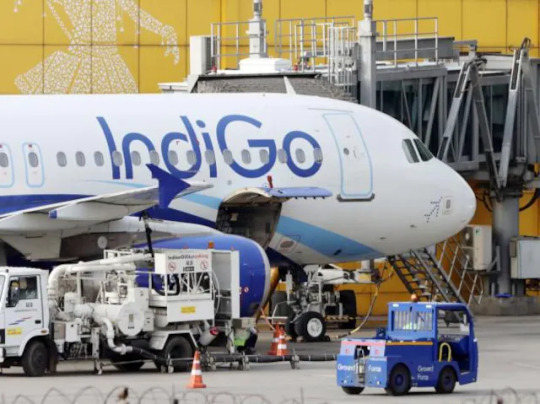
IndiGo CEO on Monday offered his regrets on the incident that happened at the Ranchi airport on Saturday wherein a specially-abled child was barred from boarding his flight to Hyderabad as he was in a state of panic.
Having reviewed all aspects of this incident, we as an organization are of the view that we made the best possible decision under difficult circumstances, he said in a statement.
Throughout the check-in and boarding process our intent of course was to carry the family, however, at the boarding area the teenager was visibly in panic, he mentioned.
While providing courteous and compassionate service to our customers is of paramount importance to us, the airport staff, in line with the safety guidelines, were forced to make a difficult decision as to whether this commotion would carry forward aboard the aircraft, he stated.
We recognize too well that parents who dedicate their lives to the caring of physically challenged persons are the true heroes of our society, he noted.
We offer our sincere regrets to the affected family for the unfortunate experience and as a small token of our appreciation of their lifelong dedication would like to offer to purchase an electric wheelchair for their son, he added.
As the boy was prohibited from boarding the airline's Ranchi-Hyderabad flight on Saturday, his parents -- who were with him -- also decided to not enter the plane.
Read more
#IndiGo#IndiGo CEO#IndiGo aviation#IndiGo Airlines#Specially abled children#Specially abled child#IndiGo incident#IndiGo flight incident
0 notes
Text
Weekend musings - the weekly column which looks at interesting tit bits in aviation
2 notes
·
View notes